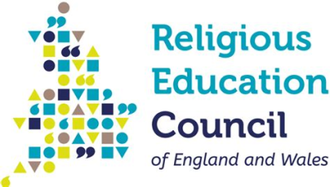'New era' for Religious Education as panel recommends adding subject to National Curriculum for first time

The Religious Education Policy Unit has welcomed the Curriculum and Assessment Review panel's recommendation to recognise the value of Religious Education by including it in the National Curriculum.
The final report from the Curriculum and Assessment Review states that; "RE's importance is not currently reflected in its standing in the curriculum," and recommends moving it to the National Curriculum in order to "improve access to high quality provision and prevent further diminishment."
Since the 1988 Education Reform Act, Religious Education has been a compulsory subject in the school curriculum but not part of the National Curriculum. Each local authority instead has provided an agreed syllabus to determine what is taught.
But the review now calls for a "staged approach to reform" to have the subject adopted into the National Curriculum. It recommends that the Government invites representatives from faith bodies, secular groups and experts from the teaching and wider education sector to develop an "independent task and finish group" that will decide on how the subject is taught in the new curriculum.
The Curriculum and Assessment Review also highlighted the Religious Education Council's work to "improve and standardise the RE curriculum" through its National Content Standard, describing this initiative as a "catalyst for more substantial reform."
Last year's Ofsted subject report on RE praised the subject as "intellectually challenging and personally enriching". It stated that "it helps young people develop beliefs and values, and promotes the virtues of respect and empathy, which are important in our diverse society."
However, the subject has undergone decades of neglect, with both a recruitment crisis alongside an ongoing problem with lessons being taught by teachers who have had no specialist RE training.
Half of secondary teachers who deliver Religious Education lessons spend most of their time teaching another subject, while the total number of teachers has remained the same since 2011 despite a growth in entries for Religious Studies at GCSE.
Deborah Weston OBE, Chair of the Religious Education Policy Unit, said: "The recommendation by the Curriculum and Assessment Review that RE be included in the National Curriculum is the most important opportunity for the subject in decades. After years of neglect, RE is adrift. Across the country, hundreds of thousands of students do not receive an academic, specialist study of the different religious and non-religious worldviews that make up modern Britain. This is now an opportunity to end that.
"Following the panel's recommendation, the Government, school leaders and the RE community must come together and build on the broad consensus already secured around the RE Council's National Content Standard for RE in England. It will not be an easy task, but the prize is now in sight, and that will be to ensure every young person has the opportunity to discuss the different responses to life's big questions in an academic and respectful environment."
Sarah Lane Cawte, Chair of the Religious Education Council of England and Wales, said: "This marks the start of a new era for Religious Education and one that now requires collaboration across the subject's community to help deliver the vision of the new National Curriculum. The REC is ready to work with government and school leaders across the country to ensure that the voices of RE teachers, academics and religious leaders inform this new direction. We are confident that together we can deliver a subject that is intellectually rigorous, challenging and geared towards helping young people flourish in modern Britain."
Katie Freeman, Chair of the National Association of Teachers of RE, said: "The NATRE executive and I welcome the recommendation that RE be included in the National Curriculum. This historic move will help strengthen the provision for RE, supporting schools and curriculum designers to deliver a subject that prepares young people for life, work and further education. Alongside accountability measures and the restoration of the teacher training bursary, we have an opportunity to end the 'postcode lottery' of teaching in RE and ensure every student in the country gets the best of our subject. NATRE looks forward to continuing to work with other stakeholders in the sector to ensure the completion of this important work."
LINK
Religious Education Council of England and Wales: https://religiouseducationcouncil.org.uk/


















